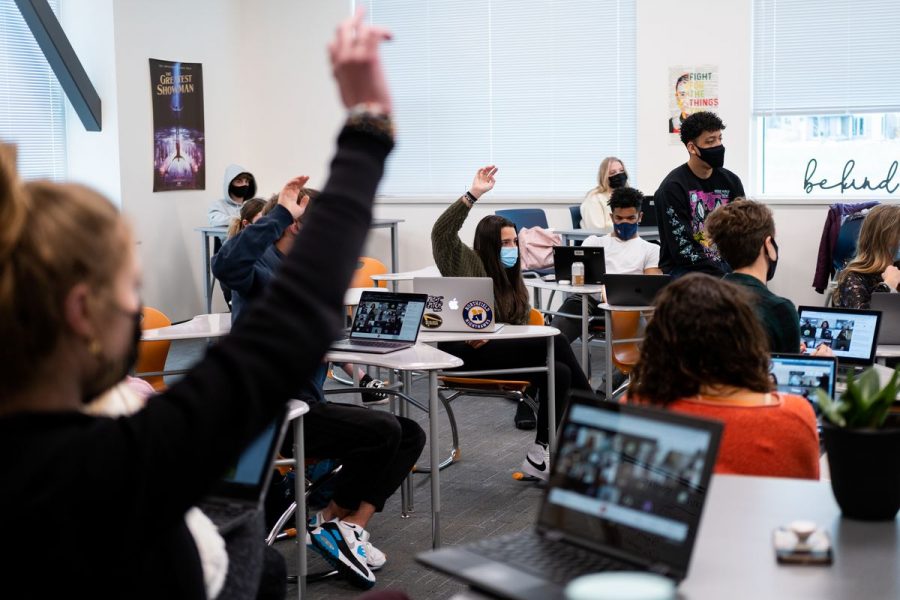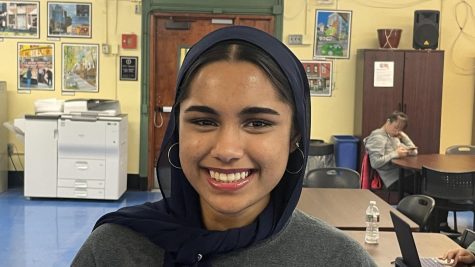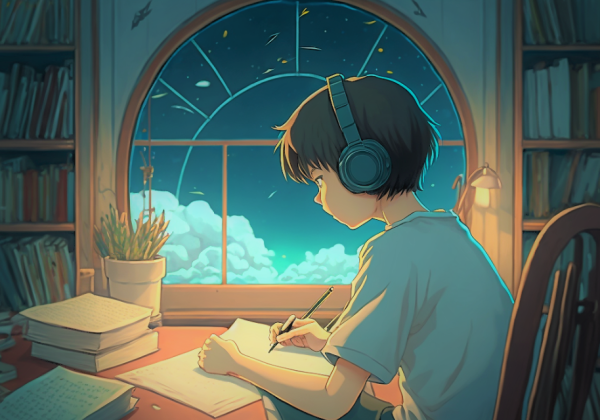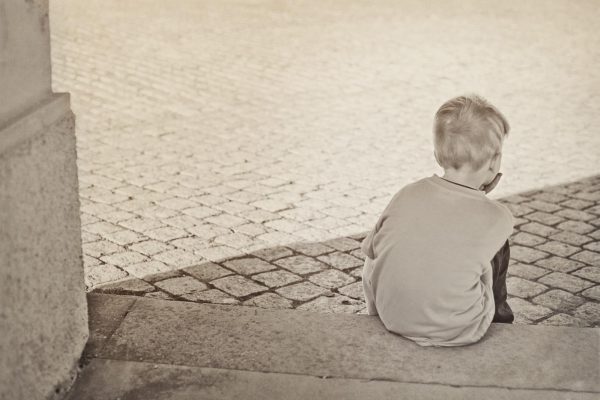The social and psychological results of a year and half in quarantine
While social distancing and wearing masks, students adapt to the new sense of normal as they return to school. Photo Credit: https://co.chalkbeat.org/2021/5/20/22446726/denver-public-schools-later-middle-high-school-start-times
November 9, 2021
Being deprived from social interaction for so long, and then suddenly being thrust back into a setting filled with people is not an easy feat. Spending all day and night with your parents and immediate family gets tiring, and many students share this similar feeling. It’s as if you were trapped in your home, with no source outside communication.
And so, being in this situation for almost a year and a half had many psychological and social consequences for the average person.
Many students share that after being stuck in quarantine for so long, it is hard to readjust to what we have now adopted to be normal life. iSchoolers in particular feel like being back in school is such a surreal feeling, where seeing people and socializing once felt like a distant reality is now occurring. Even then, anxiety surrounding being back in person is prevalent all throughout, where people do not know how to go about this opportunity of normality.
“Throughout the pandemic, anxiety, depression, sleep disruptions, and thoughts of suicide have increased for many young adults. They have also experienced a number of pandemic-related consequences – such as closures of universities, transitioning to remote work, and loss of income or employment – that may contribute to poor mental health,” states Kaiser Family Foundation.
According to the CDC, 40% of U.S adults reported to be struggling with their mental health or substance abuse. Of these people, 31% had anxiety and depression symptoms and 26% had trauma and stressor-related disorder symptoms.
Rightfully so, it has been noticed that many mental health issues have been developed or have been increased for young people as a result of the pandemic, consequently due to the different situations that have come about attempting to combat COVID-19. Additionally, according to an extensive study done by nature.com, the physiological outcomes of quarantine include depression, anxiety, insomnia, and acute stress.
iSchoolers agree with these studies, sharing their own personal experiences from quarantine where they struggled mentally as a result of all the stress they were put under.
Junior Hanna Kessler-Karp shares her own struggles, “I sort of started getting depressed again and I spent a lot of time in my room and everyday felt the same and everything started to blur.”
It was quite exhausting having to stick to what many remember as their remote learning schedule, which Hanna shares was a difficult period for her. “Remote school was hard really for me, I was struggling to turn in assignments a lot and I was able to keep my grades up, but I always turned this in at the last minute. I slept through my classes and was not doing great with my work,” she adds.
The feeling of having to do the same exact thing every single day must’ve been overbearingly hard to deal with. It was as though remote learning had both no structure and also failed to provide any excitement to students. Thus, being back to school and having to commute and see people on a daily basis, which was once taken advantage of, are the little things that many feel happy to return to.
“I think it’s better to have a structured routine. Before in online school, I set my alarm for 8:59, join a zoom call at 9, and sleep through Zoom, so now I have some sort of routine which is good,” Hanna explains.
While admittedly so, this structured routine as she puts it, is a weird adjustment, it’s nice to feel like there is some sort of normality that students can enjoy from previous years. With the start of school, students are returning back to the social aspects that they were deprived of.
Alexander Horbal, a sophomore at the iSchool, expresses how “I feel like socially, I like that there’s some social aspect, it makes school easier to handle and with clubs now in person, it’s much more fun and interactive.”
Having events such as club meetings and other opportunities to socialize with others allows school to be a better experience for everyone, and especially after not having these things to look forward to before, it makes it an even more exciting moment. Although it may be a lot to take in, going from not interacting with peers to seeing them on a regular basis, this is all an adjustment we will continue to make.
“I’m naturally a very anxious person so I dread the first day of school, especially in this situation because we’re tenth graders but really we’re practically like freshman because this is like the first time we’ve been fully in the building in a semi-normal way,” Alexander discloses, “Socially, in an online format no one makes friends and even if you do, there’s a lack of it and that’s what makes school for most a second home. So, it’s bittersweet, if you will.”
It’s quite understandable how readapting to the social aspects of school may be hard, especially after the social implications of quarantining for over a year. There are shared experiences among many iSchooler’s when it comes to speaking in terms of their mental health and how they chose to go about handling it. Social anxiety and depression are common outcomes of COVID-19 and so, psychologically and socially, the transition back to school is much harder as a result.
“I think people saw [their mental health] as a second priority. I think a lot of peoples’ energy went into how to navigate the new ways of remote life so I don’t know if people actually prioritized their mental health, there were probably distracted rather than doing things that actually made them feel better, and I think that they’re experiencing the effects of that now after quarantine,” Ms. Klimowicz, a chemistry teacher and advisor at the iSchool, mentions.
Truthfully, having to balance prioritizing your mental health and also keeping up with everything that was going on along with school made many see their mental health as irrelevant at a time like this. So, with doing so, having to now come back to school, people are realizing how this mentally affected them and continues to as they try to return to this new normalcy.
“I think students were very overwhelmed and felt trapped because they couldn’t leave and then having to come back, it was a weird transition,” states Ms. Colon, the guidance counselor.
The experiences that people went through and endured throughout quarantine are not going to disappear overnight. It requires them to prioritize their mental health and understand how they are doing after the whirlwind of a pandemic that they experienced.
Ms. Klimowicz also adds how, “It definitely feels strange for people to be back and I think the enthusiasm and excitement just to be around other students is outweighing those fears right now but I think there was a lot of trauma and a lot of stress and J think we are still very much in an adjustment period, I don’t think this adjustment period is over yet.”
There’s a lot that we still must do to fully adjust and readapt to the new reality of our lives and in doing so, there will be problems when it comes to recognizing how we have been impacted mentally and socially as a consequence of the hectic year and a half that we have suffered through. Nevertheless, it is important to look at this time of readjustment optimistically and appreciate our efforts towards returning to normal life.
“I am so happy to see everyone, when you all are not in the building, the building has no life, that’s just the truth, it just feels like a shell of it, it’s quiet, but that energy students bring, it’s just absent and so it was to just see everybody with each other and we’re figuring it out. I’m tired, I think everyone is tired. We’re having to wake up earlier, we’re having to commute and I’m with people all the time so I’m emotionally exhausted. I see people in the hallway, it’s constant, I’m tired, but I’m really glad we’re all back together,” comments Ms. Colon.













